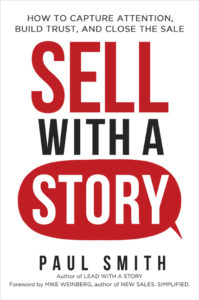Podcast: Play in new window | Download | Embed
Subscribe: RSS
Podcast (lead-with-a-story-podcast-series): Play in new window | Download | Embed
Subscribe: RSS
Loyalty is one of those things that sounds like a good idea or an admirable character trait, until you think about what it really means in a real-world situation.
 One of the creepiest moments in my working career was when my team got a new boss and in our first meeting with her, she looked at us all sternly and said, “loyalty is very important to me.” And she made it clear that what she meant was our loyalty to her, personally, as the leader.
One of the creepiest moments in my working career was when my team got a new boss and in our first meeting with her, she looked at us all sternly and said, “loyalty is very important to me.” And she made it clear that what she meant was our loyalty to her, personally, as the leader.
It was a surreal moment — like something out of one of the Godfather movies where the Mafia Don asks his loyal henchmen to kiss his ring and pledge their lives to “the family.”
I was thinking after the meeting that I have loyalty to the company, in that I’m not going to do things that help our competitors. But what would it mean to “be loyal” to my boss? Does that mean I have to blindly support whatever ideas she has or statements she makes? I hope not. They pay me to think at this company, not rubber stamp my boss’s ideas.
Does that mean if she gets caught stealing from the company, that I have to lie to keep her out of trouble? I’m not willing to do that. Does that mean if I ever hear other managers talking about her or her ideas in a critical way that I’m supposed to jump in to defend her, no matter if she deserves that criticism or not? That doesn’t sound like honest leadership. And if loyalty to my boss doesn’t mean these type of things, what does it mean?
That experience forever changed my thoughts on the importance of loyalty as a character trait. Namely, I don’t think it’s very important anymore. In fact, in a lot of situations, loyalty is downright unethical. It’s the biased and uncritical support of someone or some thing.
Loyalty is appropriate for describing your support of your favorite college football team. You’ll cheer for them even if they’re the worst team in the league. Maybe it’s appropriate to describe your support for your children, and for similar reasons.
But your boss doesn’t need a cheerleader. What she should need is a smart, capable employee who bases their analysis and recommendations on an honest assessment of the situation — not based on loyalty. Just like what you need is a smart, capable boss who’ll base your next promotion decision on your performance, not on whether or not you’ve been “loyal.”
In most professional environments, a boss who needs loyalty to be successful is unfit for leadership. I suppose there could be exceptions. But for the largely intellectual pursuits most corporate staffers find themselves engaged in, loyalty to leadership is not a trait to be admired, but to be looked at with suspicion.
—
 Paul Smith is one of the world’s leading experts on business storytelling. He’s a keynote speaker, storytelling coach, and bestselling author of the books Lead with a Story, Parenting with a Story, and Sell with a Story.
Paul Smith is one of the world’s leading experts on business storytelling. He’s a keynote speaker, storytelling coach, and bestselling author of the books Lead with a Story, Parenting with a Story, and Sell with a Story.


 Connect with him via email here.
Connect with him via email here.
Follow him on Facebook, LinkedIn, Twitter, and Instagram.
Sign up for his newsletter here to get one new story a week delivered to your inbox.

